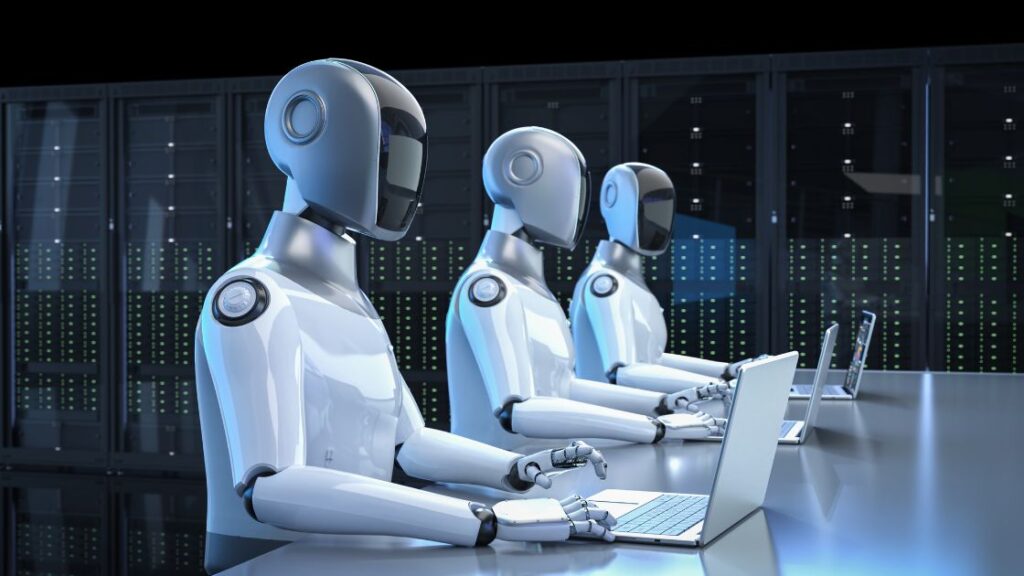Advertisements
Technology never sleeps—and honestly, I wouldn’t have it any other way. Every year brings fresh innovations that change the way we live, work, and think. But as we enter 2025, I’m seeing a noticeable shift. It’s not just about faster devices or better graphics anymore. It’s about meaningful change—technology that solves real problems, pushes limits, and redefines what’s possible.
I’ve spent countless hours reading, researching, and experimenting with the most promising trends in tech. So, in this post, I’m walking you through the top 10 emerging technologies that I truly believe you need to keep your eye on in 2025.
AI Agents That Work for You
First off, let’s talk about autonomous AI agents. These aren’t just tools—they’re becoming personal assistants with brains. While ChatGPT got us excited, 2025 is ushering in AI agents that can handle end-to-end tasks: booking travel, managing finances, even launching entire websites.
I’ve tested a few, and it’s mind-blowing how they learn your preferences and improve over time. Soon, we won’t just ask questions—we’ll assign responsibilities.
Spatial Computing: Your Environment, Enhanced

Next, spatial computing. I tried the Apple Vision Pro last year, and while it was still early days, it showed me what’s coming. By 2025, I expect spatial tech to merge our physical world with digital layers—perfect for productivity, design, and even health.
From surgeons overlaying real-time data on patients to students walking through historical events in 3D, spatial computing is a total game-changer.
Green Tech That Goes Beyond Buzzwords
We’ve all heard the promises of clean energy. But this year, I’ve seen a genuine leap in green innovation. From modular solar panels for apartments to portable carbon capture devices, 2025 is delivering tech that empowers individuals and cities alike.
Personally, I’ve started tracking my carbon footprint using a smart home dashboard. It’s wild how small changes—enabled by better tools—make a difference.
Quantum Computing Reaches a Turning Point
Let me be clear: Quantum computers won’t replace your laptop. But they will solve problems classical computers simply can’t touch. In 2025, I believe we’ll see breakthroughs in quantum error correction, making them far more stable and useful.
Startups are already offering cloud-based quantum access. I tried one experiment on drug simulation and realized this isn’t just hype. It’s science catching up with fiction.
Brain-Computer Interfaces (BCIs)
This one blew my mind—literally. BCIs are making massive strides this year. Elon Musk’s Neuralink made headlines, but other companies are building non-invasive systems for controlling apps with thoughts.
As someone who tested a prototype EEG device, I can confirm it’s real. It’s not perfect, but it’s thrilling. BCIs are poised to transform communication for people with disabilities—and eventually for everyone else too.
Next-Gen Batteries and Sustainable Power
Battery life has always frustrated me. Thankfully, 2025 is delivering some relief. New solid-state batteries are safer, charge faster, and last longer. Companies like Toyota and Samsung are leading the way.
I recently upgraded to a phone with graphene-enhanced cells, and the performance has been remarkable. This tech could also transform electric vehicles and storage for renewable energy.
Personalized Medicine Powered by AI
Here’s where tech meets health. In 2025, AI-driven diagnostics and treatments are finally becoming mainstream. I recently had a wellness consultation powered entirely by AI—and the precision was astonishing.
We’re talking custom treatment plans based on your DNA, environment, and real-time health data. It’s like having a doctor in your pocket who never sleeps.
Decentralized Identity and Data Ownership
Privacy isn’t dead—but we have to fight for it. That’s why I’m excited about decentralized identity systems built on blockchain. Instead of giving companies your data, you control it—and choose who can access it.
I started using a decentralized ID wallet this year, and while adoption is still growing, the potential is huge. This tech flips the script on how we handle identity online.
Humanoid Robots Enter the Workforce
Humanoid robots aren’t just for sci-fi anymore. In 2025, we’re seeing robots with improved dexterity, language processing, and facial expressions. Some are already working in retail and healthcare.
I recently visited a tech expo where I interacted with a humanoid that could read emotions and respond appropriately. It felt oddly natural. Within a few years, these machines could become common in hospitality and education.
Synthetic Media and Generative Content

Finally, let’s talk about content creation. You’ve probably heard of AI-generated images, music, or even movies. In 2025, these tools are now fully collaborative. They’re not replacing artists—they’re working with them.
I’ve used generative tools to draft articles, storyboard videos, and brainstorm logos. They save time, spark creativity, and are surprisingly intuitive. Just be sure to balance convenience with originality.
Why These Technologies Matter
Every one of these emerging tools isn’t just cool—they’re impactful. They touch on the environment, accessibility, security, and how we create and connect. I’m not just fascinated by them—I’m integrating them into my daily routine.
The key is to stay curious. Try new things. Ask questions. These trends aren’t waiting around, and by staying ahead, we can be part of the change rather than reacting to it.
As we navigate 2025, I encourage you to keep your eyes on these technologies. They’re shaping not just the future of tech, but the future of humanity. I’ll be diving deeper into each of these topics in upcoming articles, so if any of this piqued your interest, make sure to stick around.
Tech Digest is your front-row seat to tomorrow. Stay tuned—we’ve only just begun.




[…] for reading! If you’re into tech, urban innovation, and future-focused stories, stay tuned to Tech Digest for more insights and […]